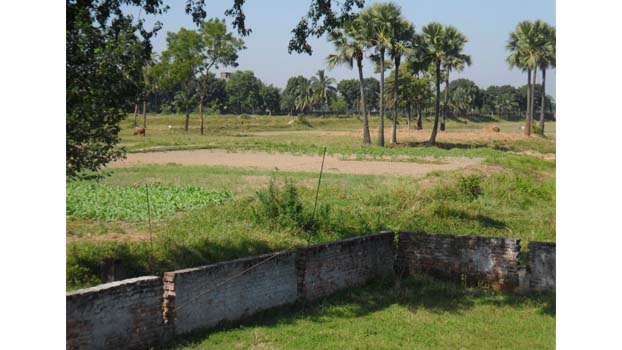The government has formulated a new policy to take advantage on use of all unused land which have potentials for agriculture production.
The policy aims at attaining ‘absolute food security’ and so it proposes identifying and maximizing utilization of the left over or unused arable land for further increase in food production and hence prepare Bangladesh for any uncertainty of global economic crisis due to the on-going coronavirus crisis.
According to a report titled, 'Report on Agriculture and Rural Statistics 2018' published by the Bangladesh Bureau of Statistics (BBS) last year, the total amount of land used in the country is 226,51,74,000 decimals.
The distribution of amount of land per family is about 82 decimals. These lands include houses, ponds, permanent grazing or crop lands, temporary crop lands and fallow lands as well. Of the total land, the quantity of fallow land about 10,85,15,000 decimals.
KAS Murshid, Director General of Bangladesh Institute of Development Studies (BIDS), said, “Country's agriculture has all the potentials. In future, agriculture will be one of the strongest foundations of the Bangladesh’s economic structure.”
He continued, “All kinds of technologies for farming have to reach the farmers at affordable prices. This has to be done by changing the incentive and funding structure.”
“Besides production, we also have to pay attention to the marketing mechanism of agricultural produces. We need to introduce digital methods in marketing of agricultural products now. If we want to focus on increasing profits by reducing the cost of farming, we need to reach the touch of the fourth industrial revolution in this sector like in the developed world. Then the country's agricultural sector will get a sustainable transformation,” said Murshid.
It is widely known that following the global novel coronavirus attack, many countries have announced a halt to food grain exports. As a result, international trade in food grains, especially granular food, is likely to be limited in the near future.
Considering the situation, Prime Minister Sheikh Hasina, earlier on April 20, has emphasized on raising food production to cope with the Corona disaster and post-disaster situation. For this, she advised not to keep even an inch of land uncultivated.
The Prime Minister said that even if the pandemic caused by coronavirus is eradicated, food crisis and even famine could occur all over the world. But our country does not have that possibility if we produce more. We need to increase our production so that we can cooperate with other countries.
It should be mentioned that country's crop production sector is moving forward despite the multiple crisis. Its annual food crops production has already crossed the milestone of 7 crore tons.
Officials of the Ministry of Agriculture said that the ministry wants to double the productivity of food grains by 2030.
As part of the target, incentives have already been provided to grow vegetables at home.
Besides, some families in each village will be given model settlements for vegetable production in their backyards. They would be provided supports with seeds, fertilizers and even fences. It means, conversion of fallow land to arable land has already started.
Not only that the Bangladesh Bank has created fund in the agricultural sector at a low interest to encourage farmers in crop production and to avoid food crisis.
Besides, the central bank has also fixed the interest rate on loans for production of all types of crops including paddy, wheat, potato and maize at 4 percent. By June 2021, the interest rate on all types of loans at the farmer level will be 4 percent. Till last September, a total of 78,526 farmers have received over Tk 1,876. crore as loan from the refinancing fund.













